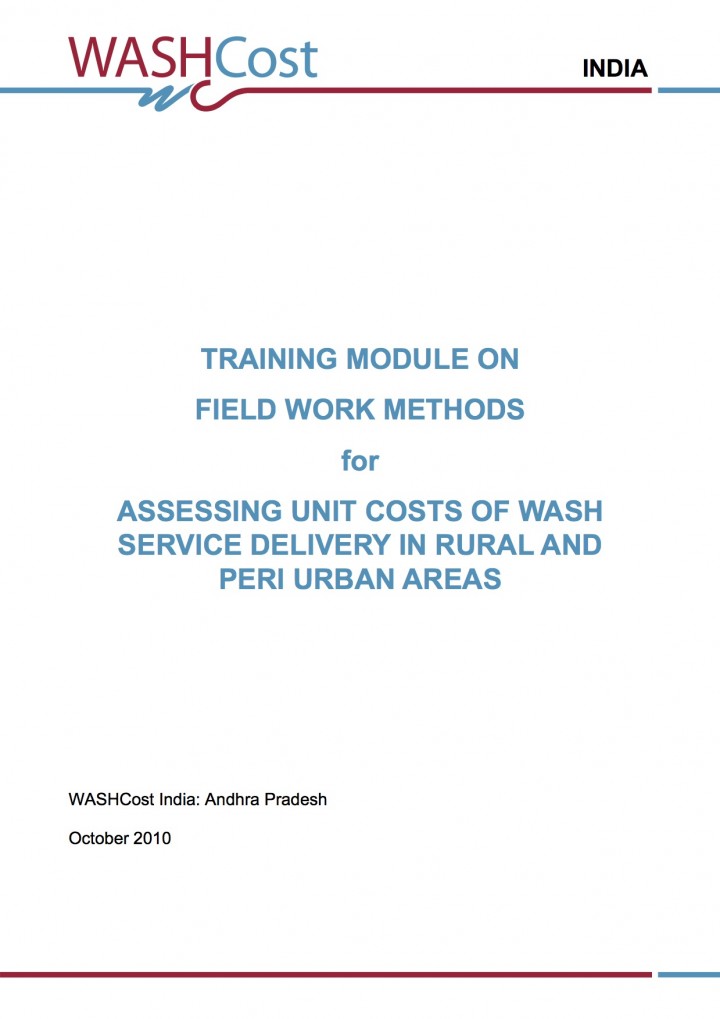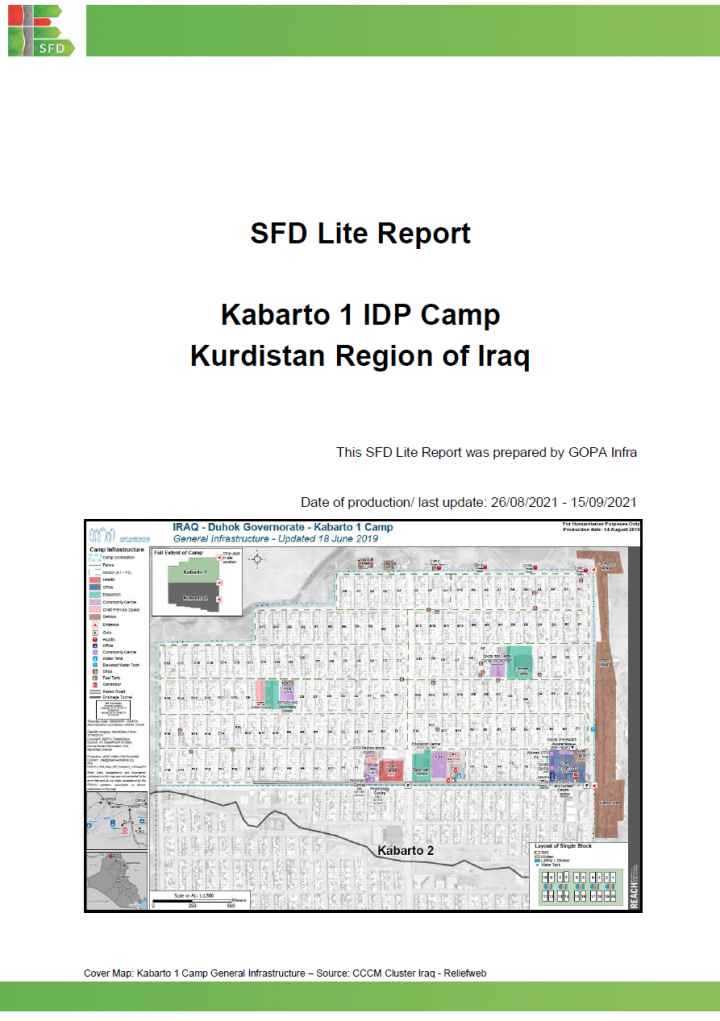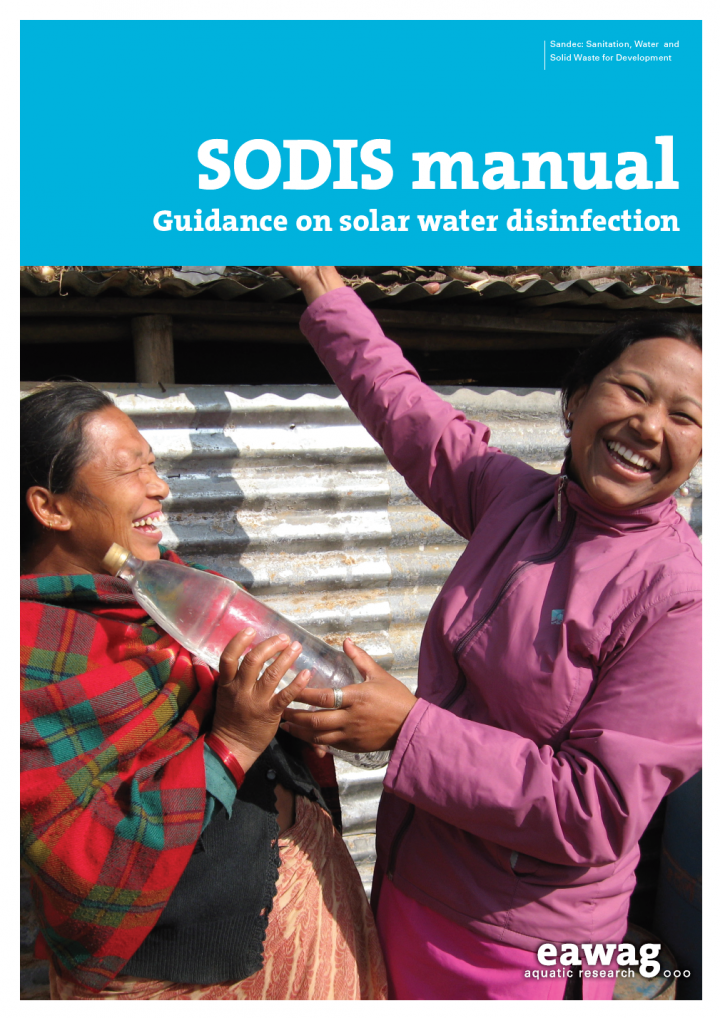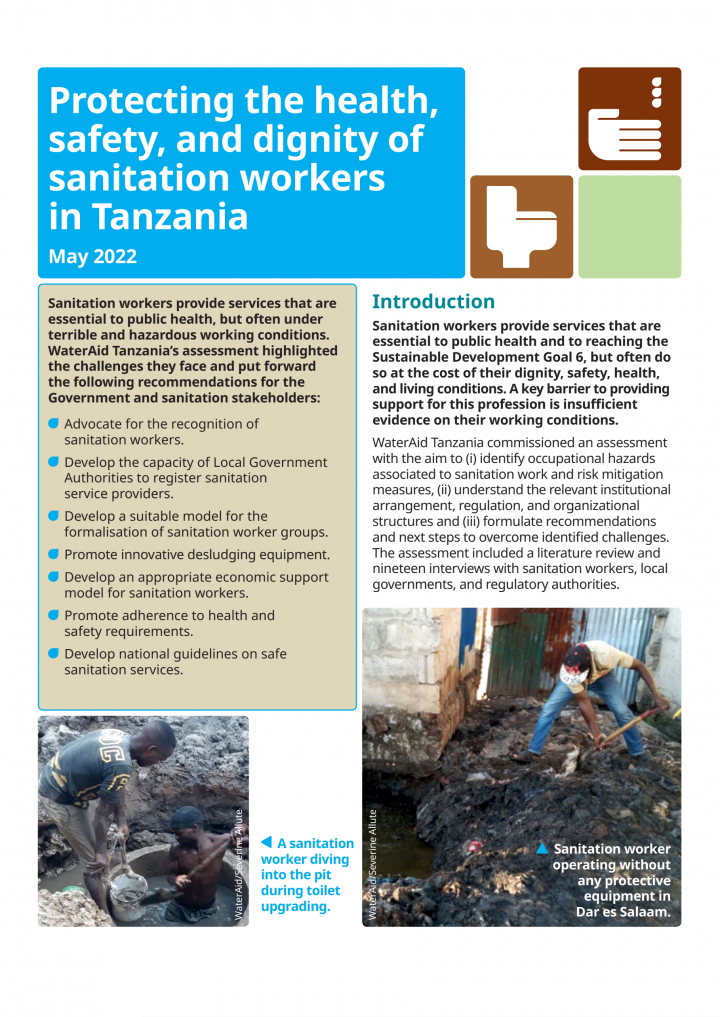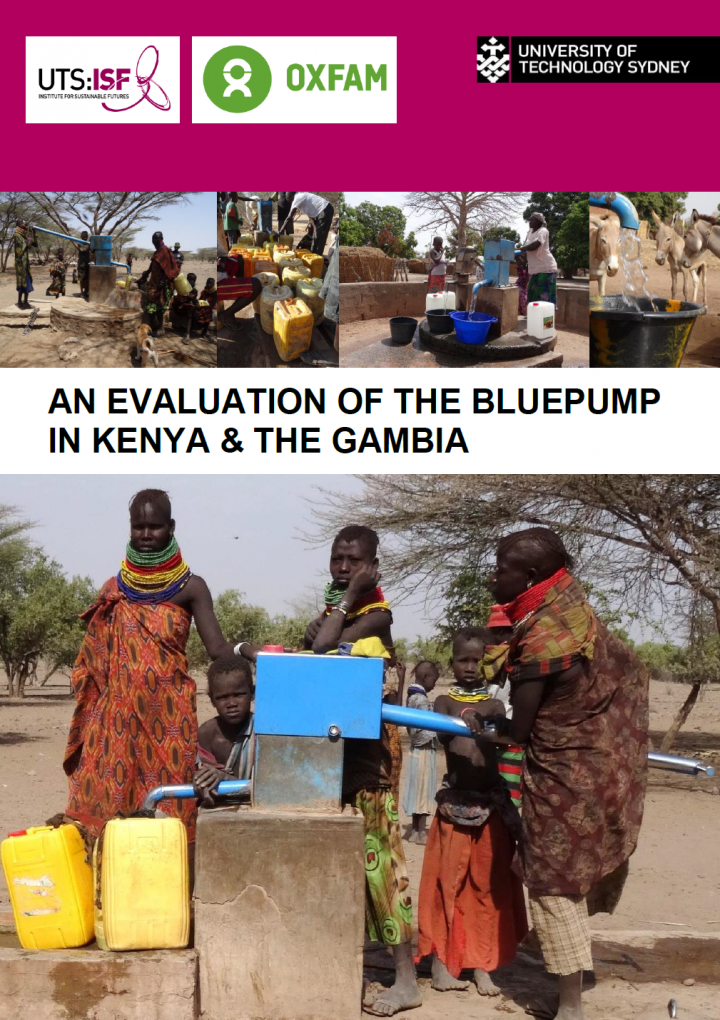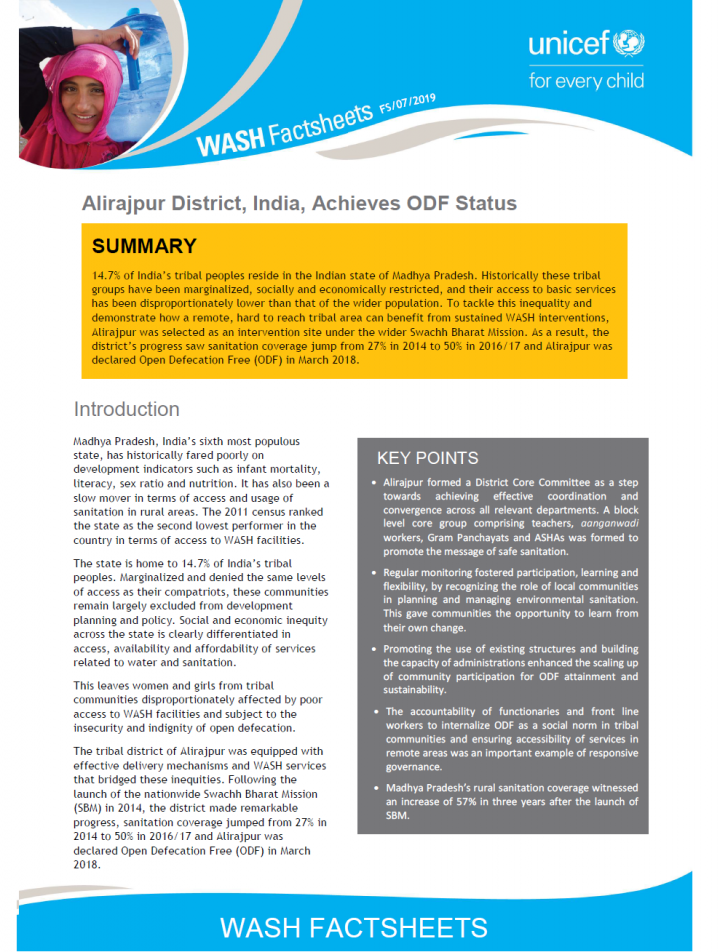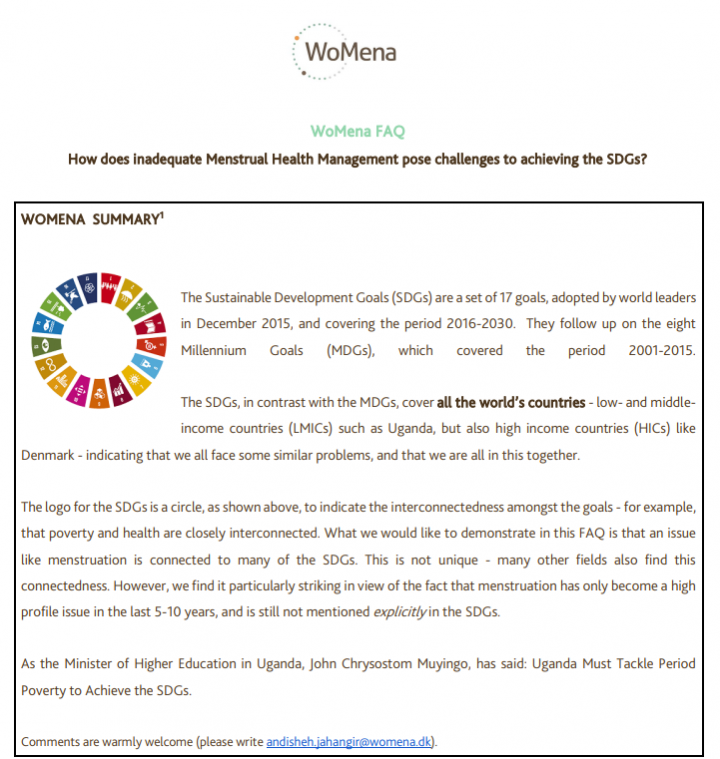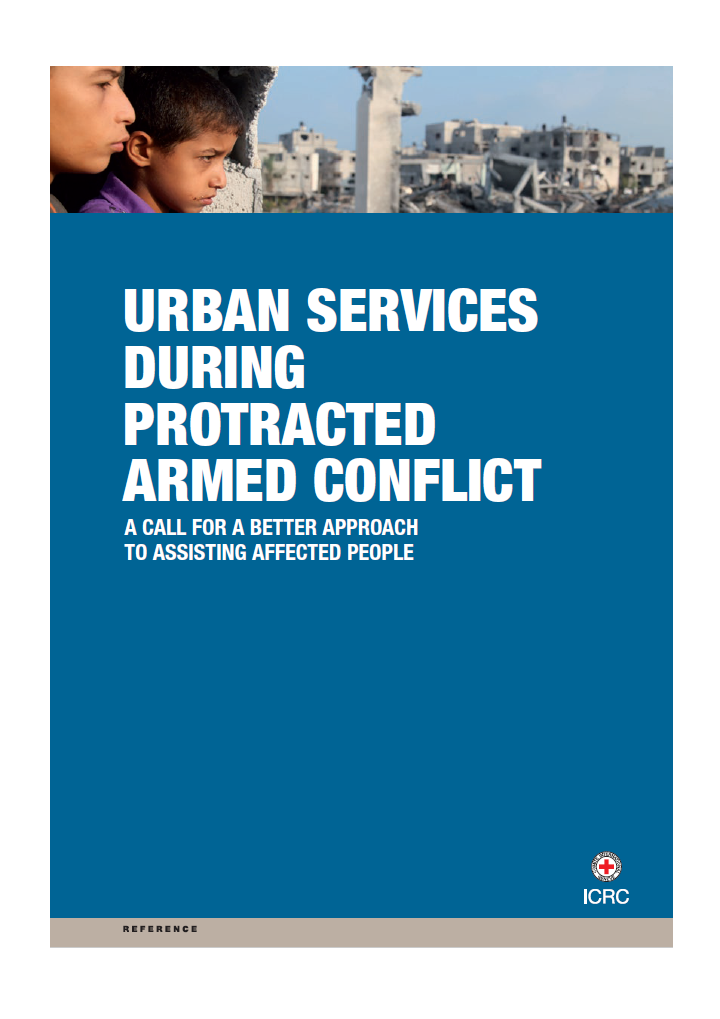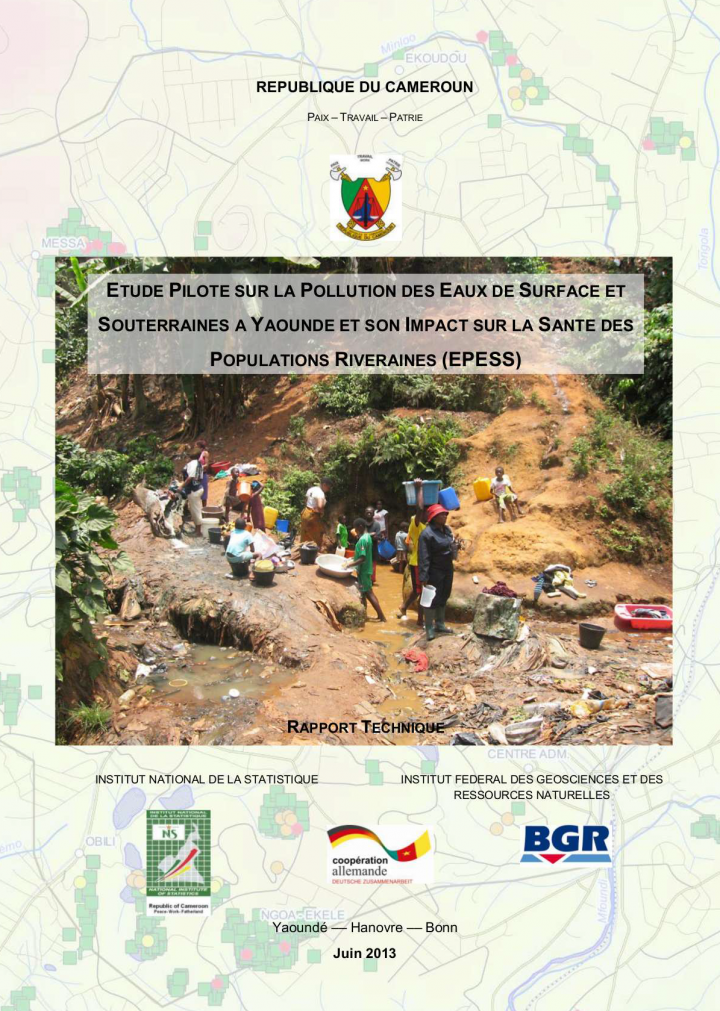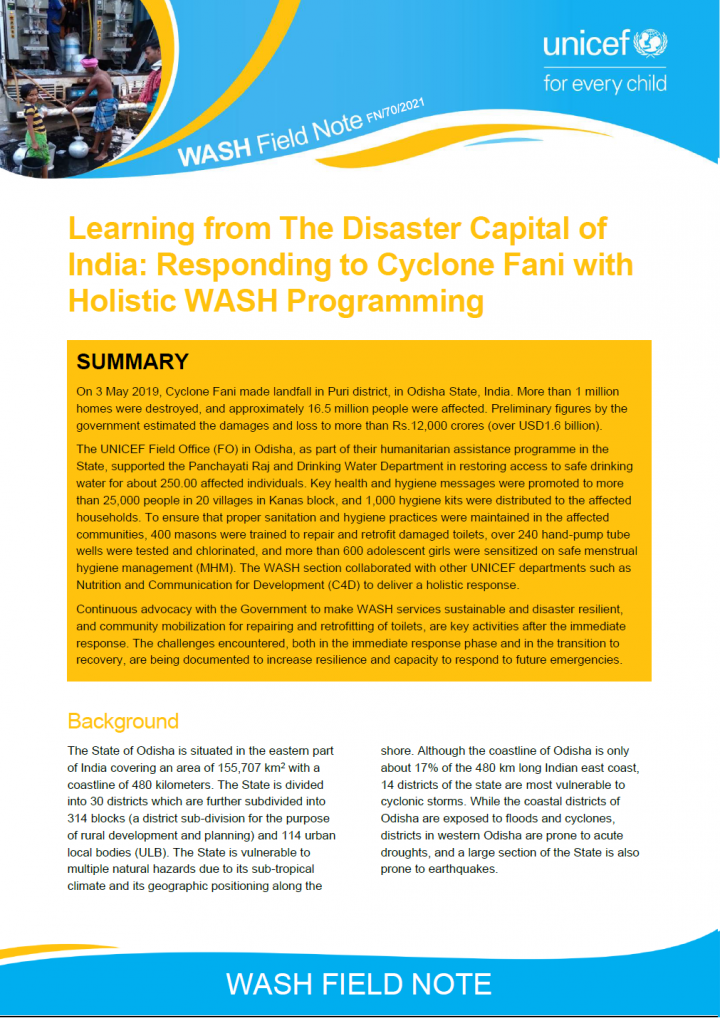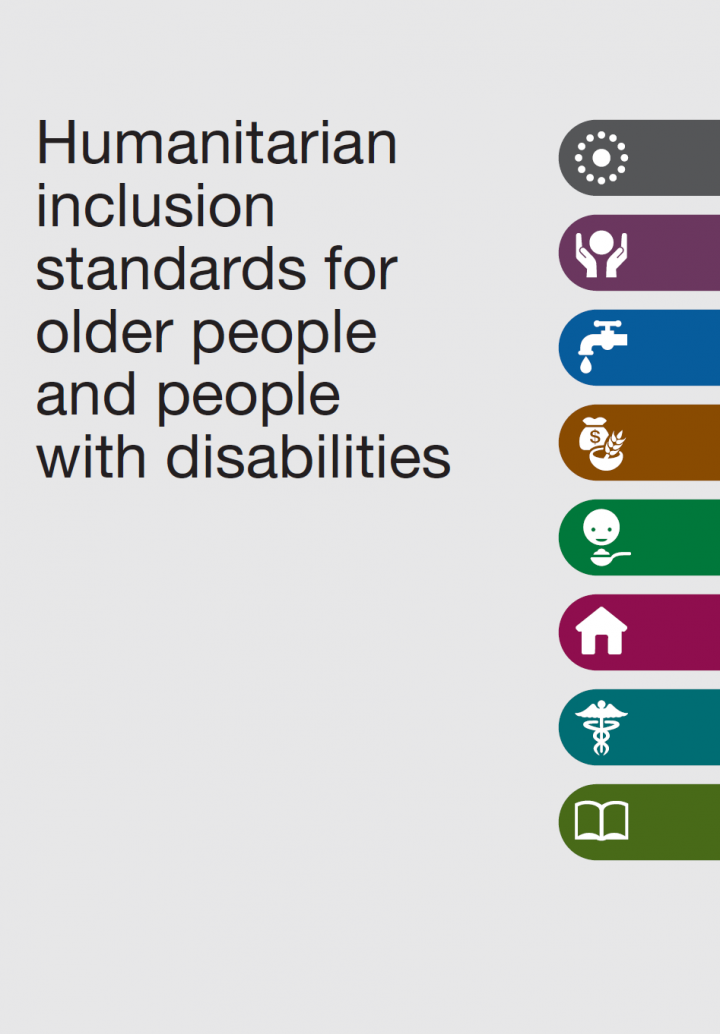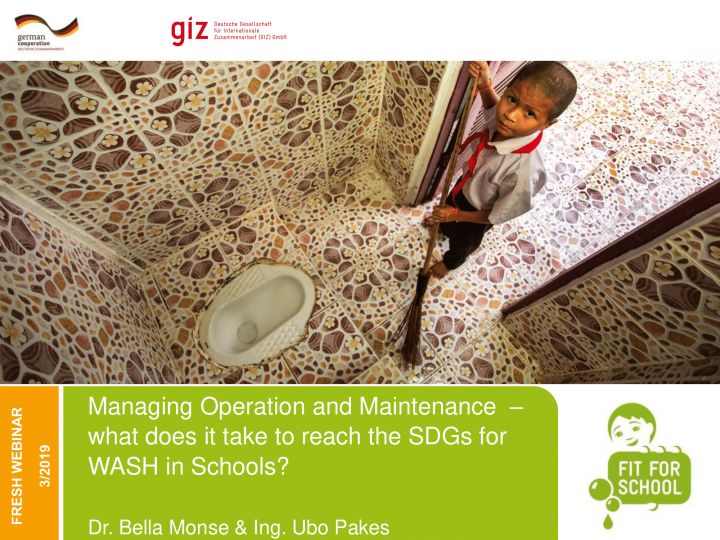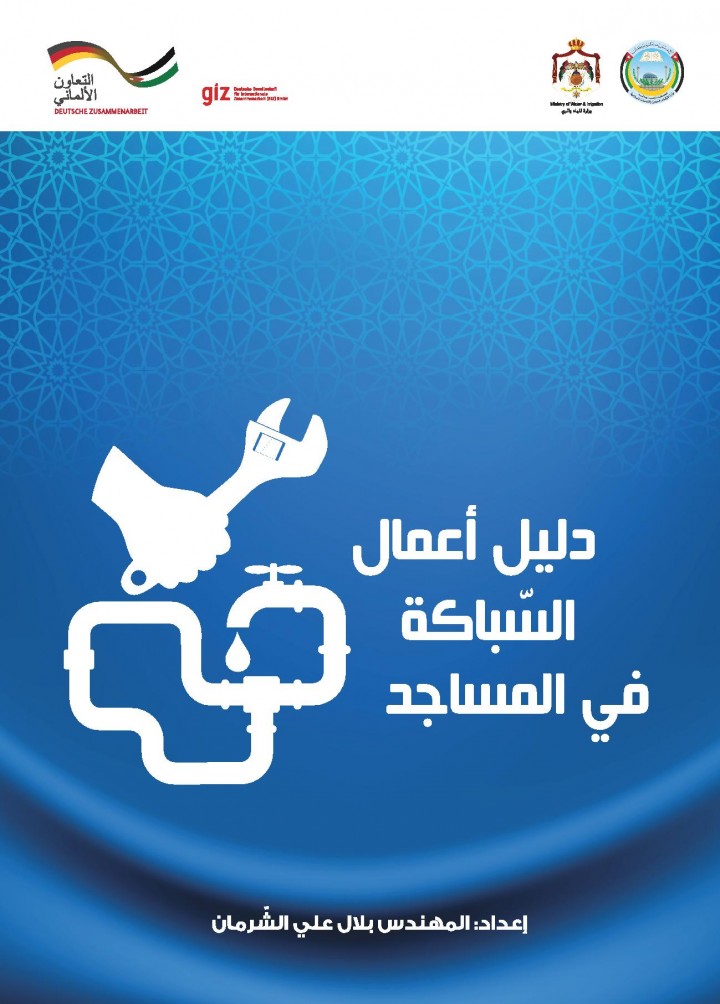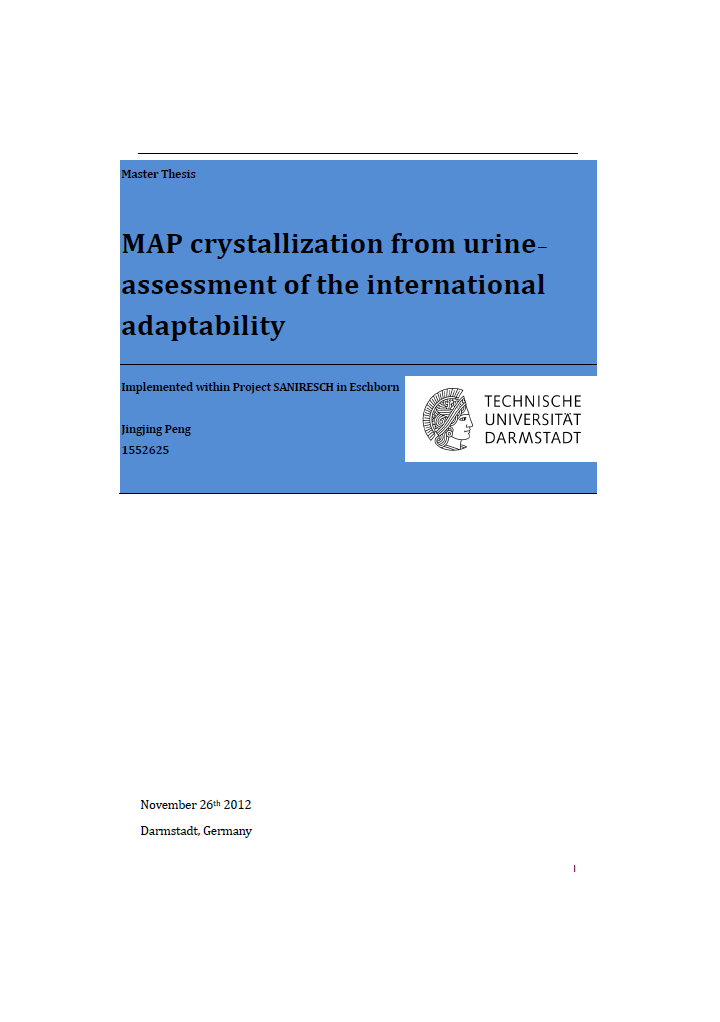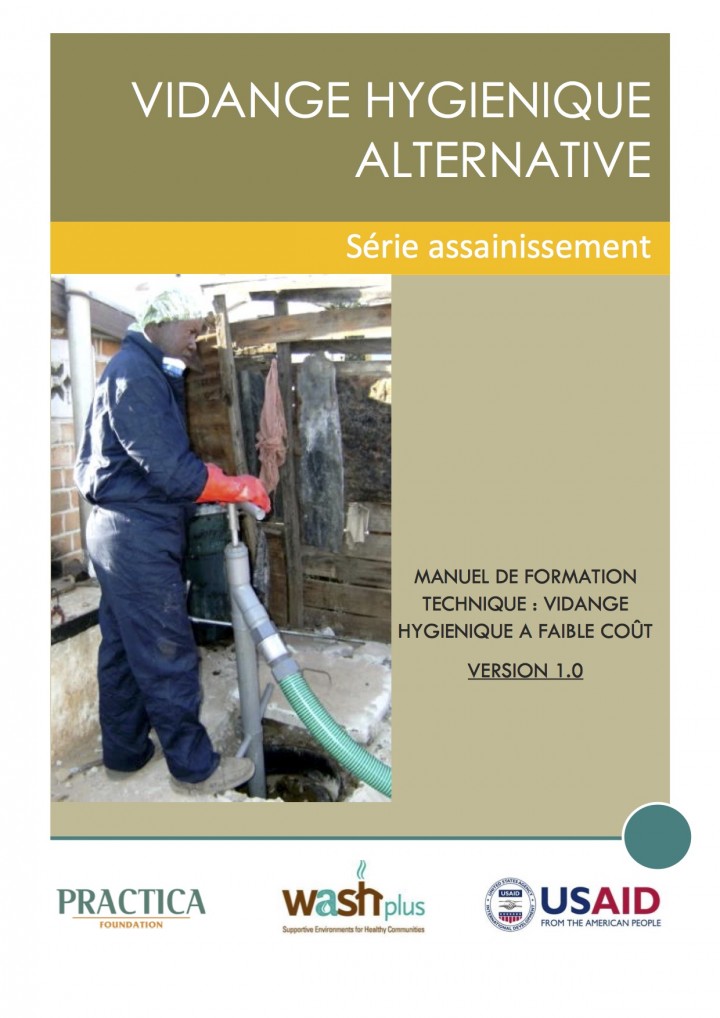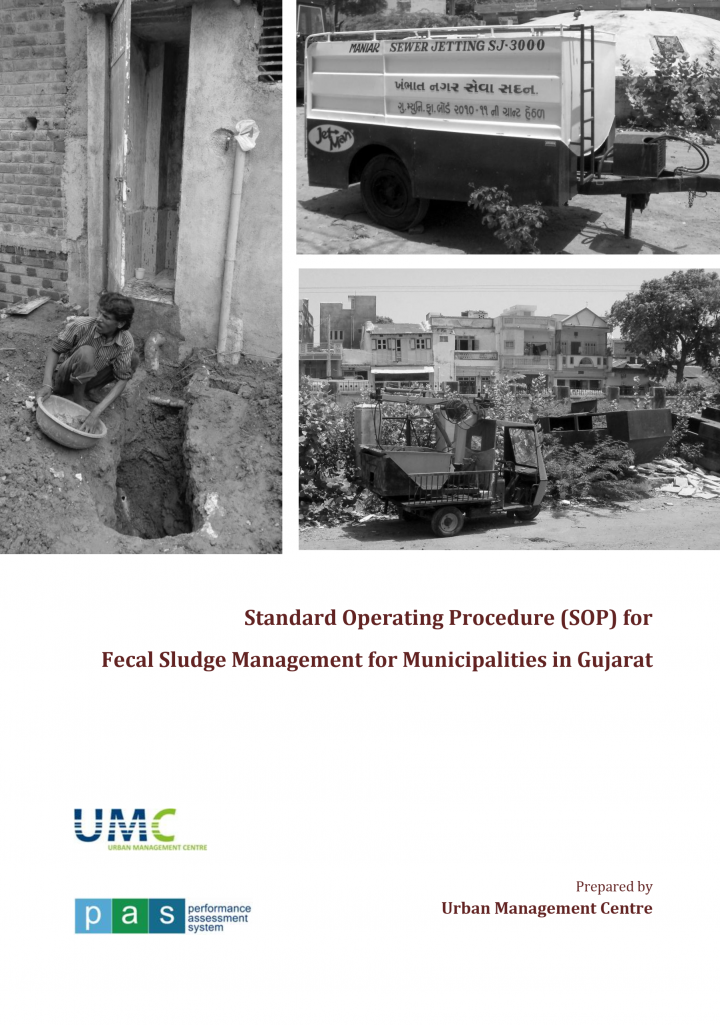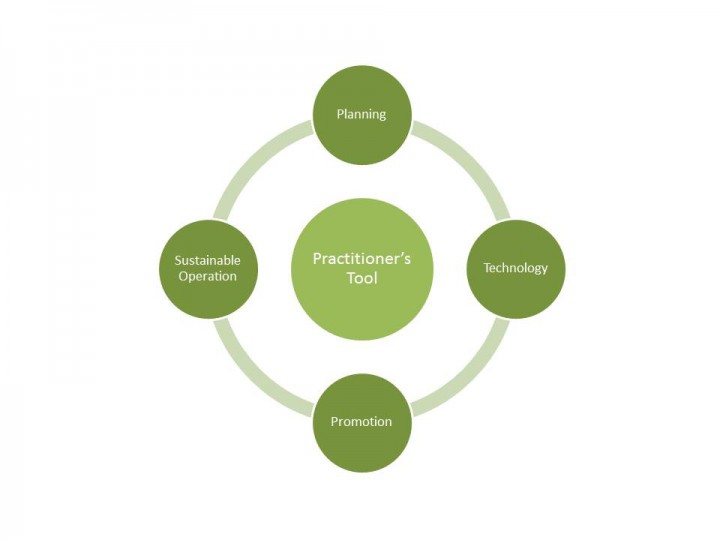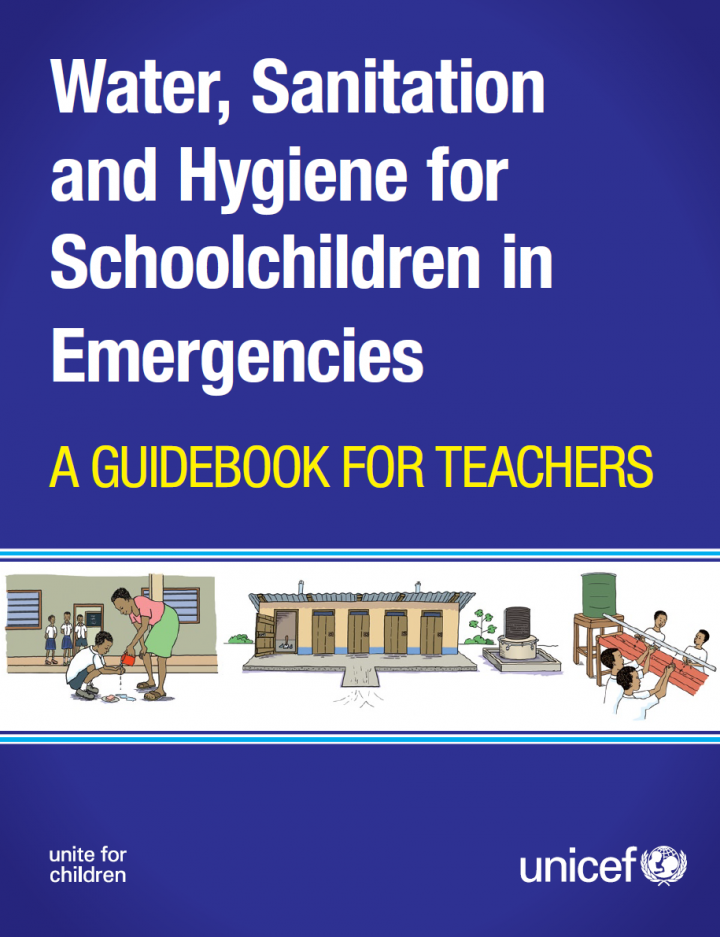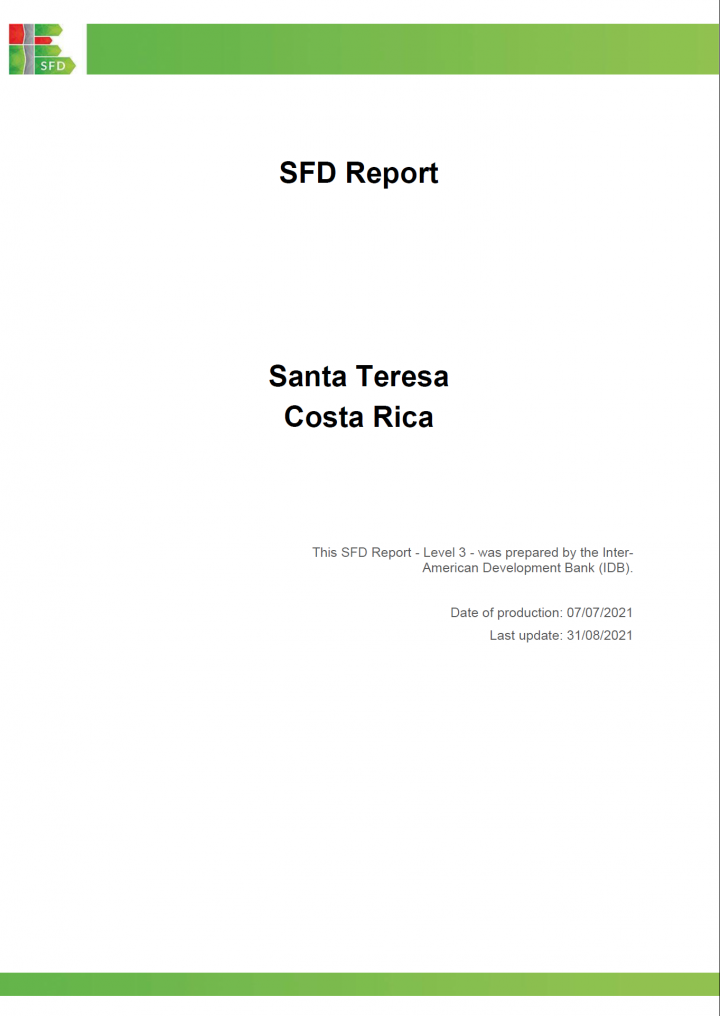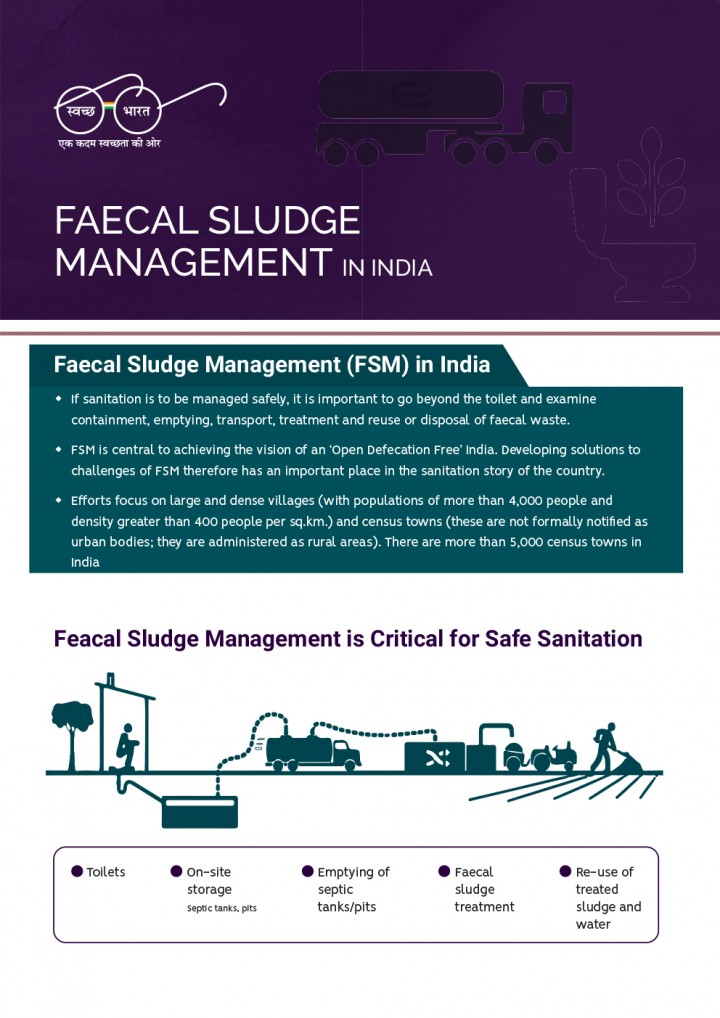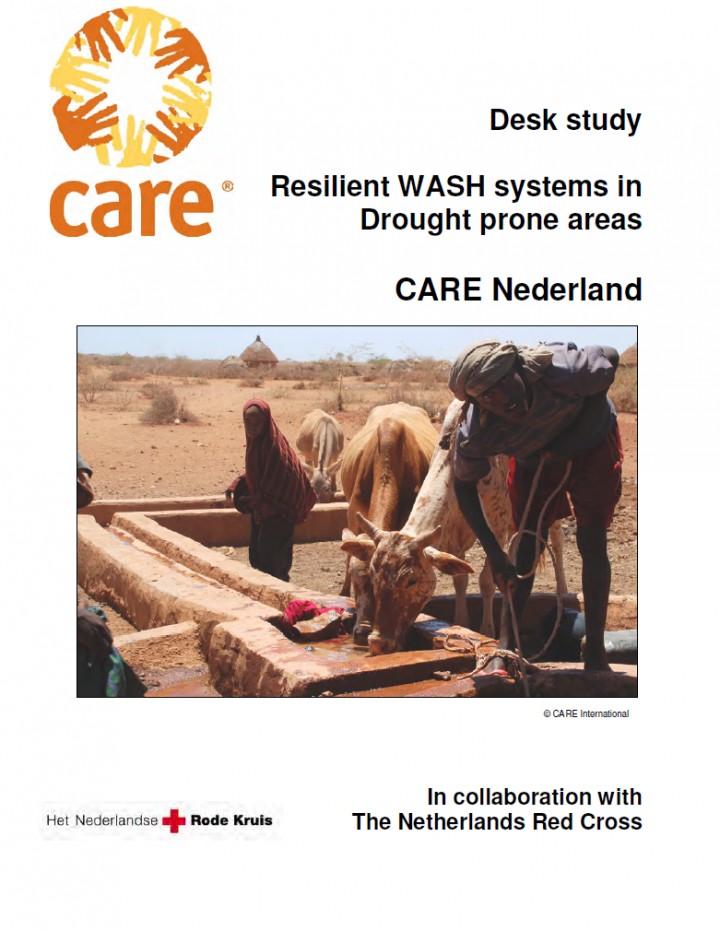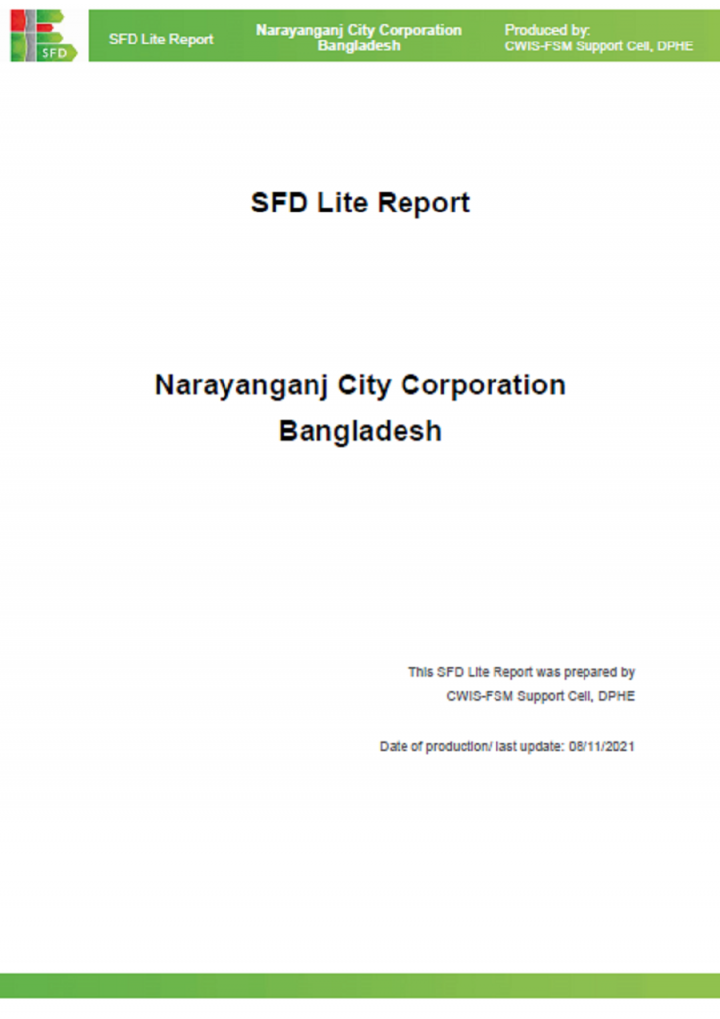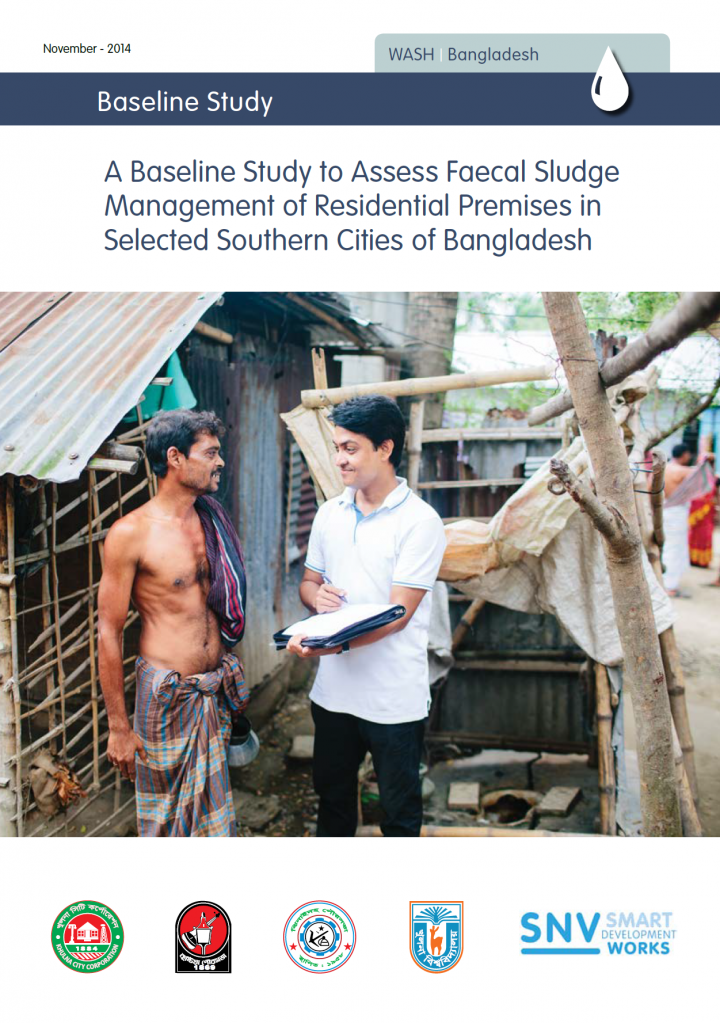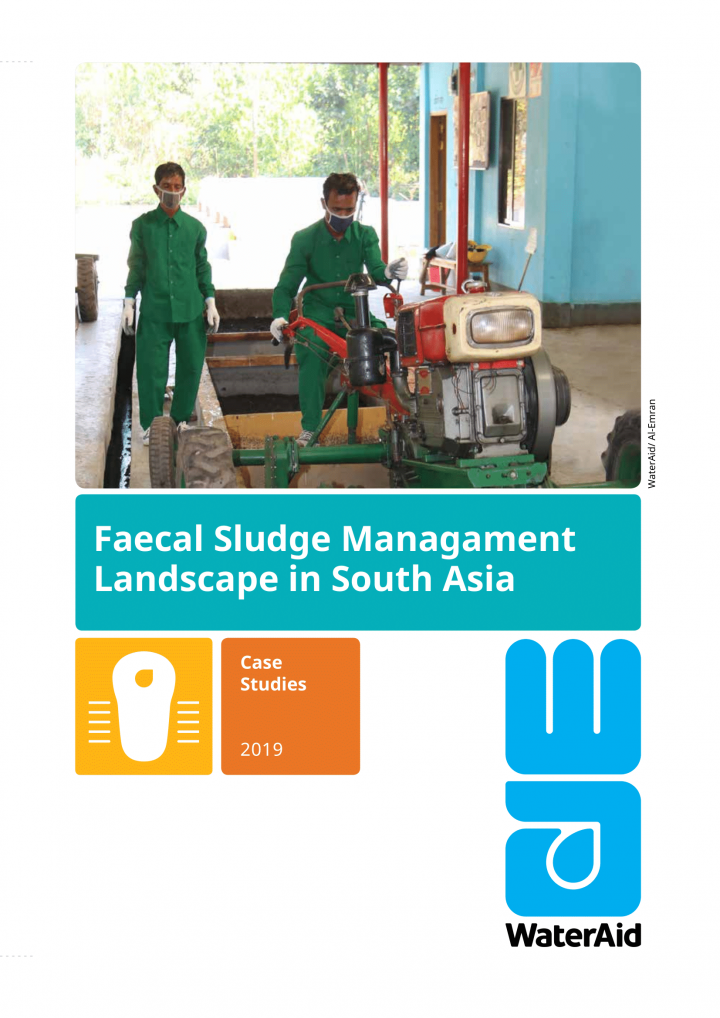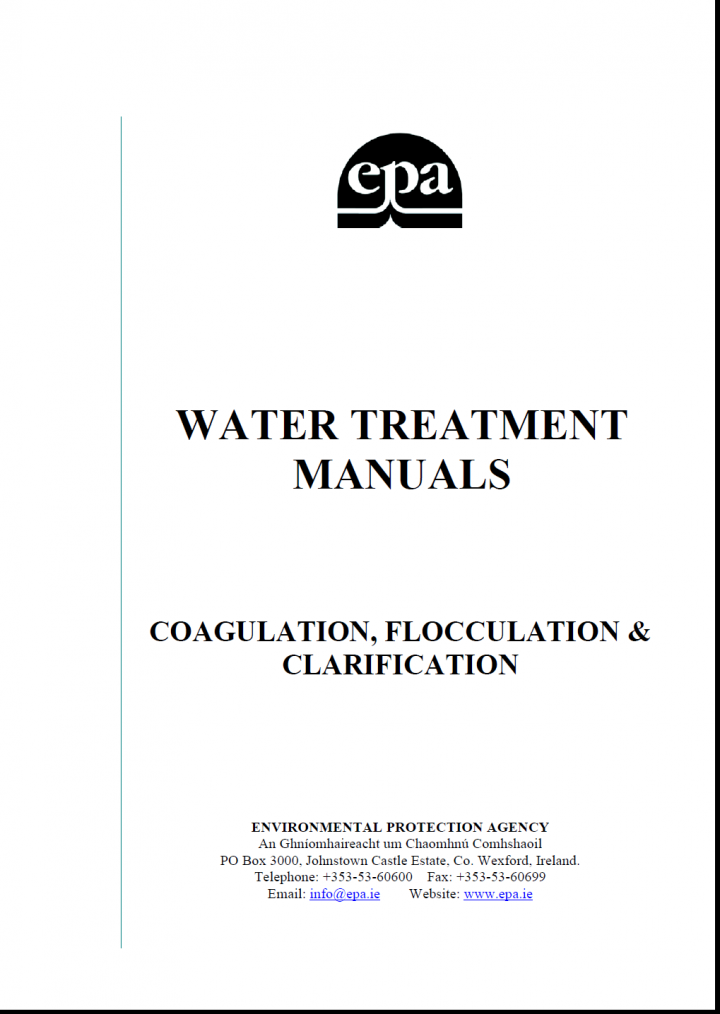Searching for information on Sanitation Workers?
The Sanitation Workers Knowledge + Learning Hub is the best source for all current news, trends, articles and updates on sanitation workers rights around the world.
The WASHCost Project aims at improving sustainability, cost efficiency and equity of WASH service delivery in rural and peri-urban areas by identifying the factors influencing costs at each stage of WASH service delivery life cycle. In order to achieve the overall aim of WASHCost project, the methodologies designed for tracking inputs on WASH service delivery system are largely tested in test bed …
Kabarto 1 IDP Camp is situated in the KRI and located in the Sumel District, which is part of the Duhok Governorate administration, and it lies approximately 13km southwest of Duhok.
The population figures are managed by the camp management on behalf of the Directorate of Migration and Crisis Response (DMCR) and, the population present at the time of the key informant interview with the camp …
The SODIS method is a water disinfection method, making use of the sun’s energy and using PET bottles. It exploits the germicidal effect of solar radiation – especially UV-A radiation - on diarrhoea causing pathogens.
SODIS is recognized as one of several viable methods for household water treatment. It has been promoted, both as a stand-alone intervention and as one component in broader …
Sanitation workers provide services that are essential to public health, but often under terrible and hazardous working conditions. WaterAid Tanzania’s assessment highlighted the challenges they face and put forward the following recommendations for the Government and sanitation stakeholders:
• Advocate for the recognition of sanitation workers.
• Develop the capacity of Local …
This report presents the results of an evaluation of the Fairwater BluePump, an emerging rural water supply technology in sub-Saharan Africa. Claims about the BluePump’s durability and minimal maintenance requirements have provoked significant interest within the rural water sector. This evaluation set out to assess the suitability of the BluePump as a rural water supply technology, taking into …
14.7% of India’s tribal peoples reside in the Indian state of Madhya Pradesh. Historically these tribal groups have been marginalized, socially and economically restricted, and their access to basic services has been disproportionately lower than that of the wider population. To tackle this inequality and demonstrate how a remote, hard to reach tribal area can benefit from sustained WASH …
Menstruation is connected to many of the Sustainable Development Goals (SDGs). This is not unique – many other fields also find this connectedness. However, we find it particularly striking in view of the fact that menstruation has only become a high profile issue in the last 5-10 years, and is still not mentioned explicitly in the SDGs.
The relief-rehabilitation-development paradigm is counterproductive in contexts of protracted armed conflict in urban areas. Experience of disaster relief and rural armed conflict has shown that it constricts planning by limiting interventions to those that are “relief” or “post-war” in nature and that may be seen as the first steps in bridging an artificial gap between conflict and …
This report (french version) is a joint WaSH-survey carried out in the subsaharan cameroonian capital Yaoundé in dry season 2012 within the framework of German bilateral cooperation with Cameroon. The report is authored by the National Institute of Statistics (NIS/INS) Yaoundé and the Federal Institute for Geosciences and Natural Resources (BGR) Hannover with participation of the IHPH …
On 3 May 2019, Cyclone Fani made landfall in Puri district, in Odisha State, India. More than 1 million homes were destroyed, and approximately 16.5 million people were affected. Preliminary figures by the government estimated the damages and loss to more than Rs.12,000 crores (over USD1.6 billion). The UNICEF Field Office (FO) in Odisha, as part of their humanitarian assistance programme in the …
Globally, around 15 per cent of the population are living with some kind of disability. An estimated 13 per cent of people worldwide are over the age of 60. More than 46 per cent of those who are over the age of 60 have a disability. Humanitarian principles require that humanitarian assistance and protection are provided on the basis of need, without discrimination. No one should be excluded …
This FRESH webinar will Introduce a costing tool to calculate the budget need for schools to provide the basic service level for drinking water, usable sanitation, and handwashing with soap. The tool provides school heads with an easy to manage app, which calculates the annual cost per student depending on local condition and local prices.
How much do they need to keep aside for consumables, …
The analysis of the international adaptability of the three treatment systems a Magnesium-Ammonium-Phosphate (MAP) precipitation reactor and two membrane bioreactors (MBRs) treating the grey- and brownwater, designed for and used within the SANIRESCH project specifically focused on developing countries.
The aim was to identify regions and typical situations that are suitable for the …
La vidange hygiénique alternative des fosses de latrines représente une nécessité primordiale dans un contexte où l’assainissement dans les pays en voie de développement repose toujours plus sur les systèmes autonomes qui écessitent tous des opérations de vidange à un moment donné. Le terme « vidange hygiénique alternative » intègre deux concepts qui constituent de véritables …
WASH in Schools aims to support the provision of safe drinking water and improved sanitation facilities, and promotes lifelong health for children and their families. Ensuring access to water, sanitation and hygiene (WASH) in every school for every child can be a huge challenge, especially during emergencies. When disaster strikes, education is often disrupted as families become primarily focused …
The town of Santa Teresa is located in the extreme southwest of the Nicoya peninsula, in the canton and province of Puntarenas, in the North Pacific Region of Costa Rica. Santa Teresa administratively belongs to the Cóbano district. Santa Teresa is formally only one of the towns of the district.
However, Santa Teresa traditionally comprises the set of towns that extend linearly along the 15 …
There are uncertainties with projected impacts of climate change, but reliability of projection depends on the area. For some regions projections of future precipitation change are more robust, while outside of these areas the predictions vary between models. Predictions also become less consistent between models as scale ecreases. One robust finding is that there will be changes in the …
Narayanganj City Corporation, established in 2011, is one of the 8 city corporations of Bangladesh. It was formed comprising Narayanganj Town, Siddhirganj Municipal area, and Kadamrasul Municipality. It consists of 27 wards. Before its establishment as a city corporation, it was a municipal corporation. The Narayanganj Municipality was incorporated on 8 September 1876. Narayanganj, a city in …
The main objective of this baseline study was to understand the current situation of faecal sludge management (FSM) and practices of residential premises in three cities in southern Bangladesh: Khulna, Kushtia and Jhenaidah. A second objective was to establish a benchmark for the FSM programme.
The baseline consists of two parts:
1) A quantitative part measuring access to sanitation, hygiene …
Some cities in the South Asian countries of Bangladesh, India and Nepal have established interventions around faecal sludge management (FSM). The purpose of this study is to identify and disseminate best practices and lessons learned on how to make FSM an integral part of urban sanitation service delivery in cities and towns in South Asia both with and without sewerage systems. This study draws …
Absolutely pure water is rarely, if ever, found in nature. The impurities occur in three progressively finer states - suspended, colloidal and dissolved matter. Different methods of treatment are required for their removal or
reduction to acceptable limits. Coagulation, Flocculation and Clarification, as well as Filtration are
interdependent stages of the solids separationphase of water …

